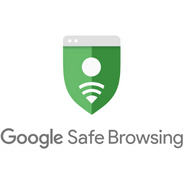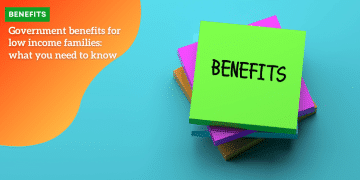Unemployment insurance updates: what you need to know

Anúncios
Unemployment insurance provides temporary financial assistance to eligible workers who lose their jobs, with varying benefits based on state regulations and updates that can impact eligibility and claim processes.
Unemployment insurance updates have become increasingly important as the job market evolves. Are you aware of the latest changes that could affect your benefits? Let’s dive in and explore what you need to know.
Anúncios
Understanding unemployment insurance and its importance
Understanding unemployment insurance is essential for anyone navigating the job market. It serves as a financial safety net for workers who lose their jobs through no fault of their own. Knowing how this system works can help you feel more prepared during tough times.
What is Unemployment Insurance?
Unemployment insurance is a program that provides temporary financial assistance to eligible workers who are unemployed. This support helps individuals cover basic expenses while they search for new employment.
Anúncios
Why is Unemployment Insurance Important?
This assistance is crucial for several reasons. First, it provides peace of mind, knowing you will have some income if you lose your job. Second, it helps stimulate the economy by giving people the means to pay bills and buy essentials during their job search. Here are some key points to consider:
- It supports the unemployed in seeking new job opportunities.
- It reduces financial strain on families during unemployment.
- It can help maintain spending in the economy.
Moreover, unemployment insurance can vary from state to state, making it important to understand local regulations and benefits. Each state has its own eligibility criteria and benefit amounts, so it’s wise to check your specific state’s guidelines. With this insurance, you’re not just waiting for a new job; you’re building a bridge to your next opportunity.
Being informed about unemployment insurance can empower you and alleviate some of the anxieties associated with job loss. By familiarizing yourself with the ins and outs of this program, you can better navigate any future uncertainties in your career.
Recent changes to unemployment insurance laws

Recent changes to unemployment insurance laws can significantly impact many workers. Staying informed about these updates is crucial for those who rely on these benefits during job transitions.
Overview of Recent Changes
In recent years, various states have made adjustments to their unemployment insurance programs. These changes often aim to adapt to shifting economic conditions and employment patterns.
Key Changes to Note
Several important modifications have occurred:
- Increased benefit amounts in some states to better support unemployed individuals.
- Extensions of the duration for which benefits can be claimed.
- Additional provisions for gig workers and freelancers who may not traditionally qualify.
It’s important to highlight that these updates vary by state. Some states have implemented temporary measures due to economic disruptions, ensuring that their residents receive adequate support during challenging times. Being aware of these laws can empower individuals to take action if they face a job loss.
For example, many states now allow individuals to receive benefits while learning new skills or pursuing education, which can improve their employability. Understanding the new regulations helps you navigate your options effectively, ensuring you receive the full benefits available.
How to apply for unemployment insurance benefits
Applying for unemployment insurance benefits can seem daunting, but it’s a straightforward process. Understanding each step can make it easier and less stressful.
Steps to Apply
To start your application, gather the necessary information. This usually includes your Social Security number, employment history, and details about your previous job. Being prepared can speed up the process.
Filing Your Claim
First, visit your state’s unemployment insurance website. Most states offer online applications, which are the quickest way to file a claim. Once you’ve accessed the site, you will need to create an account or log in if you already have one.
Next, complete the application form, providing your personal and employment information. Make sure to double-check all details to avoid delays. After submitting your claim, you’ll receive a confirmation, which may include a reference number.
What Happens Next?
After you apply, your state will review your application. This process can take a few weeks, so be patient. During this time, you may be required to attend a phone interview regarding your job loss.
- Make sure to answer all questions honestly.
- Keep records of your job search activities as you may need to report them.
- Check your email regularly for updates.
If your application is approved, you will receive notifications on how and when to access your benefits. Understanding these steps will equip you with the knowledge to navigate the application process smoothly.
Tips for maximizing your unemployment insurance

Maximizing your unemployment insurance benefits can help ease financial burdens during a tough time. Understanding how to make the most of these benefits is essential.
Understand the Eligibility Criteria
First, ensure you meet all eligibility requirements for your state. This may include a minimum number of work hours or earnings within a specific timeframe. Knowing the rules helps you access the maximum benefits available.
File Claims Promptly
Always file your claims as soon as you become unemployed. Waiting can lead to delays and possibly losing some of the benefits you could have received. Make it a priority to submit your application promptly.
Keep Accurate Records
Maintaining thorough records of your job search activities is crucial. You need to demonstrate your efforts to find work while receiving benefits. Use a simple log or spreadsheet to track:
- Job applications you submit.
- Interviews you attend.
- Networking events you participate in.
Providing this documentation can help you stay compliant with state requirements and ensure you continue receiving your benefits.
Explore Additional Resources
Take advantage of resources available to you. Many states offer job training programs or workshops for resume building that can enhance your skills. Engaging in these programs not only helps in finding a job but may also continue your eligibility for benefits.
Lastly, keep up with local job fairs or community events. Networking and building connections can lead to new employment opportunities. Remember, being proactive and resourceful plays a crucial role in this process.
State-specific unemployment insurance updates
State-specific unemployment insurance updates can have a significant impact on individuals seeking benefits. Each state manages its own unemployment insurance program, resulting in different regulations and benefits.
Recent Developments in Different States
Several states have recently made adjustments to their benefits or eligibility criteria. For example, some states have increased their weekly payment amounts to better support unemployed residents during challenging economic times.
Key Changes to Look Out For
When looking into state-specific updates, consider the following:
- In some states, the waiting period to receive benefits has been eliminated.
- Several states have extended the duration of benefits, allowing unemployed individuals to claim them for a longer period.
- New eligibility criteria have been introduced to include part-time workers and those in gig economy jobs.
Staying informed about these changes is crucial. Each state typically provides updates on its unemployment insurance website, making it easy to check current guidelines and benefits. Understanding your state’s regulations helps you navigate the application process effectively.
Moreover, some states are offering additional resources, such as job placement programs and training workshops, to assist unemployed individuals in finding new work. Engaging with these programs not only broadens your skill set but may also positively affect your eligibility for benefits.
What to do if your unemployment claim is denied

If your unemployment claim is denied, it’s important to understand your options. Many people face denials, but there are steps you can take to address the situation.
Review the Denial Notice
Your first action should be to carefully review the denial notice. This document outlines the reasons for the denial, which can help you identify what went wrong. Common reasons include not meeting the earnings requirement or not being available for work.
Gather Documentation
After understanding the reason for the denial, collect any necessary documentation to support your case. This might include pay stubs, job offer letters, or records of your job search. Having a complete set of documents will strengthen your appeal.
File an Appeal
Consider filing an appeal against the decision. Each state has a specific process for appeals, so it’s crucial to follow the guidelines mentioned in your denial notice. Typically, you’ll need to submit a written request for appeal, explaining why you believe the decision should be reconsidered.
- Submit your appeal promptly, as there are deadlines.
- Keep copies of all correspondence.
- Be prepared to provide additional information if requested.
During the appeal process, you may be required to attend a hearing. Prepare to present your case clearly, using your gathered documentation to support your claim.
Additionally, consider seeking assistance from local employment services or legal aid organizations. They can provide guidance throughout the appeals process and help you understand your rights and options.
In conclusion, navigating the challenges of unemployment can be difficult, but understanding your rights and available resources helps. Remember to stay informed about your state’s unemployment regulations, keep track of your claim process, and explore options for assistance. If your claim is denied, don’t lose hope; take action by reviewing the denial, gathering documentation, and filing an appeal if needed. By being proactive and informed, you can maximize your benefits and find the support you need during this time.
FAQ – Unemployment Insurance Questions
What should I do if my unemployment claim is denied?
If your claim is denied, carefully review the denial notice, gather supporting documentation, and file an appeal if necessary.
How can I maximize my unemployment benefits?
To maximize your benefits, ensure you meet eligibility criteria, file claims promptly, keep accurate records of your job search, and explore additional resources.
Where can I check for state-specific unemployment insurance updates?
You can find state-specific updates on your local unemployment insurance website, which provides the most current regulations and benefit information.
Are there resources available for job training while on unemployment?
Yes, many states offer job training programs and workshops to help unemployed individuals enhance their skills and improve their employability.






